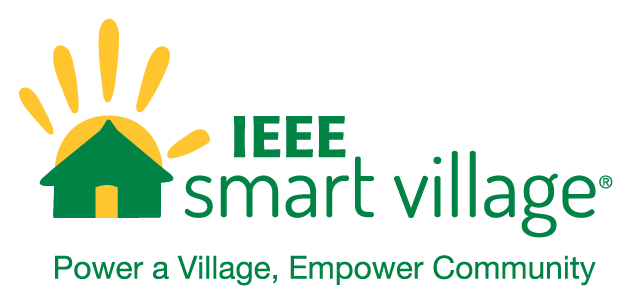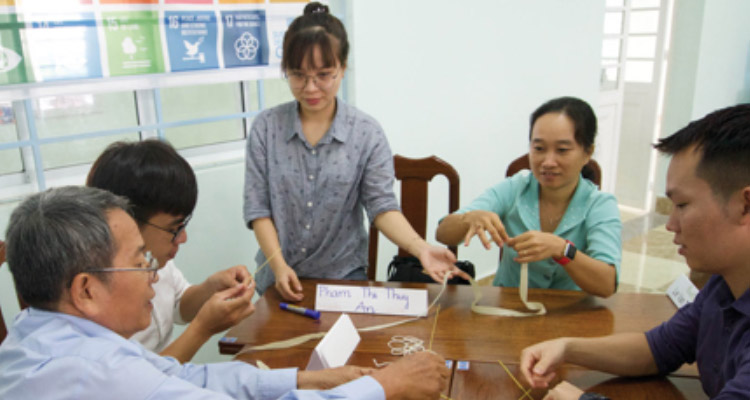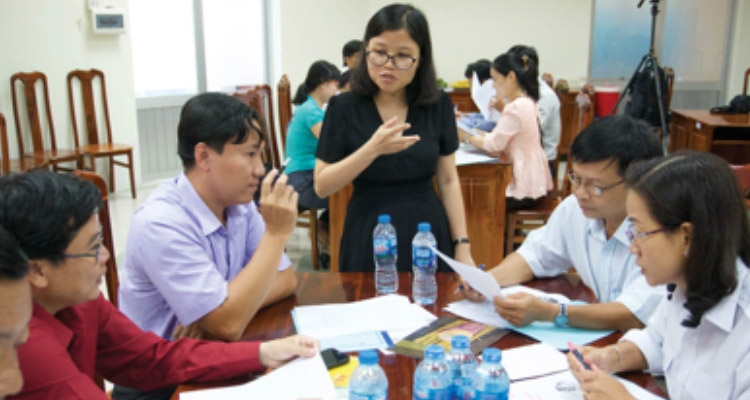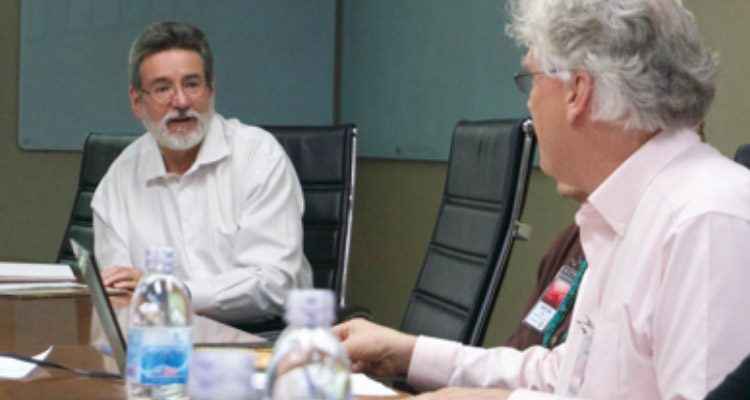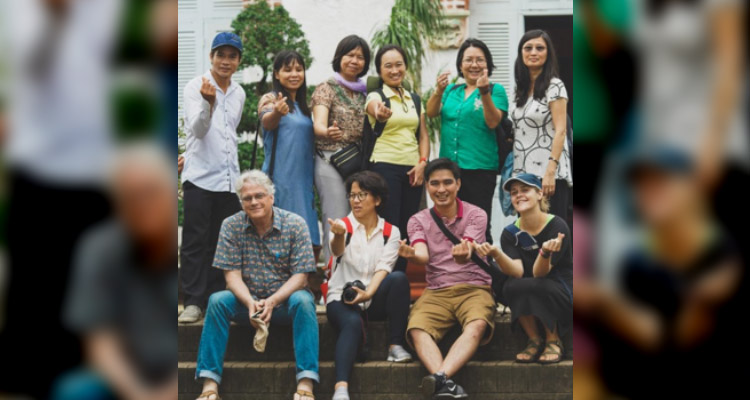Bending Bamboo – Vietnam
ON Semiconductor made a significant contribution to an initiative to expand educational opportunities in Vietnam. In collaboration with Nam Can Tho University and IEEE Smart Village, On Semiconductor committed $102,000 USD toward a two-year, multi-faceted program to expand grades 3 to 12 STEAM education across the Mekong Delta of Vietnam. This program, Bending Bamboo, grows the future of Vietnam with a teacher-led process of workshops, forums and research to build a Delta-wide repository of English language texts on sustainable and resilient development.
Bending Bamboo team has established international rapport in their program to advance Vietnamese education. Photo courtesy of Bruce Holdeman.
Bending Bamboo is a rural-to-urban collaboration that recognizes school teachers as key stakeholders who equip Vietnam for three critically important changes. First, Vietnam is transitioning from predominantly agricultural to a more industrial economy. Second, it is one of five countries on Earth that is most likely to bear the brunt force of climate change. Third, Vietnam aims to be bilingual by 2030 so that it is fully communicative with Southeast Asia and the English-speaking world.
The Bending Bamboo program is working with hundreds of teachers to insert the arts and language acquisition (“A”) into existing STEM (science, technology, engineering, and math) curricula. Generating STEAM education from the 3rd to the 12th grade becomes essential for Vietnam’s place amidst ASEAN—the Association of Southeast Asian Nations, a regional alliance for food and water, environmental and ecosystem, and naval and land security. While each of ten ASEAN countries has its own national language, they have all decided to rely on English to communicate for research, commerce, and security. Bending Bamboo’s learning objective is that STEAM curricula use both English and Vietnamese to examine sustainable industrialization, climate change and accommodation, power and energy, village-to-city migration, and natural resource stewardship.
Several Vietnamese coordinators of Bending Bamboo and Dr. Dan Wessner, IEEE Smart Village Secretary, met with representatives of ON Semiconductor on August 8th at its manufacturing facility in Bien Hoa, Dong Nai Province. Keenan Evans, ON Semiconductor Vice-President of Quality, Reliability, and Environmental Health and Safety, expressed ON Semiconductor’s corporate philosophy of social responsibility as a driving factor of its participation in Bending Bamboo.
ON Semiconductor employs 2,650 people at its Dong Nai plant for the production of world-class semiconductors. While many technicians are from rural Vietnam and now comprise part of an urban work force, they pursue equitable opportunity for villages and towns. The viability of a farming household generally includes financial support from family members who live and work in an industrial zone. ON Semiconductor and Bending Bamboo bridge the rural-urban gap with learning and global classroom connectivity for the holistic and sustainable development of both village and city livelihoods. ON Semiconductor recognizes that the quality of life of its employees is critical to long-term success. The worldwide management personnel at the Dong Nai plant—hailing from the Philippines, China, Indonesia, Malaysia and the United States—value the comparative advantage of an educated work force that contributes to the well-being of extended families . Dr. Wessner, a professor of international development at Future Generations University, notes that any country’s climate and sustainability goals will depend on rural and urban collaboration—technicians, farmers, and teachers, alike.
IEEE Smart Village will help fund this educational innovation as part of its three-pillar approach to community development. STEAM materials are developed by a core group of teachers in 2018-2019, and disseminated through a cycle of teacher-driven workshops, online courses, and electronic repository of lessons and materials for the benefit of hundreds, and eventually thousands, of grades 3 to 12 teachers in 2019 and beyond. ON Semiconductor will benefit from the increased education of its employees and their rural family members. Additionally, ON Semiconductor is invited to enhance this educational delivery platform with global classroom, connectivity, and solar microgrid capacity.
